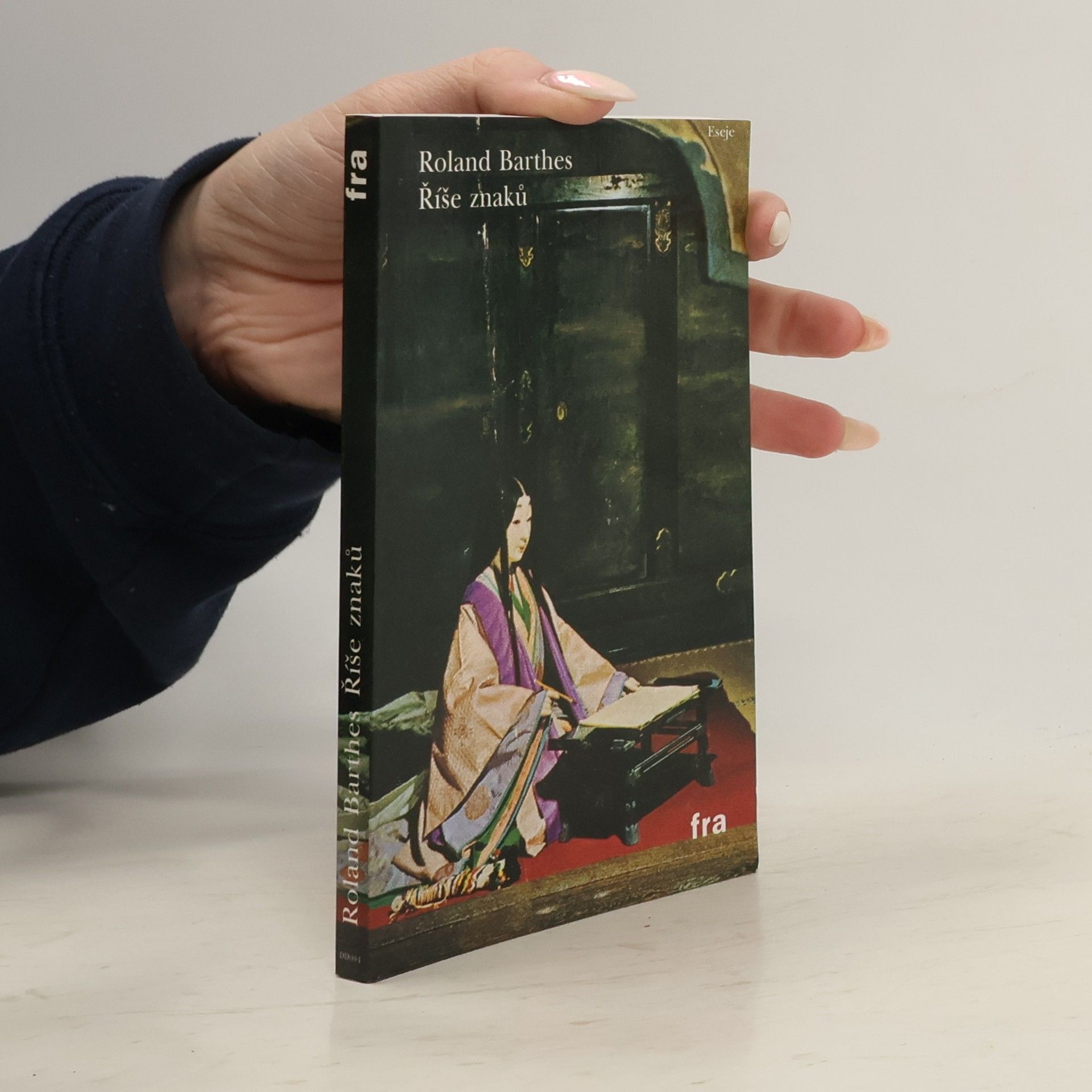Kniha francouzského literárního kritika, teoretika a esejisty, jednoho z nejzajímavějších představitelů francouzského strukturalismu druhé poloviny dvacátého století, vzešla z cyklu autorových seminářů vedených na École pratique. Ačkoli se tváří především jako zlomkovitý katalog figur, vybraných z řeči milenců, lze ji číst rovněž jako strhující příběh odkrývání překvapivě jazykové povahy milostného citu.
Roland Barthes Knihy
Roland Barthes byl francouzský literární teoretik, který zkoumal rozmanité oblasti a ovlivnil vývoj teoretických škol, včetně strukturalismu, sémiotiky, sociální teorie a poststrukturalismu. Jeho myšlenky se dotýkaly širokého spektra témat a jeho přístup k analýze textů a kultury formoval moderní literární kritiku. Barthesův vliv je patrný v různých disciplínách a jeho dílo nadále inspiruje badatele i čtenáře svým inovativním pohledem na jazyk a význam.


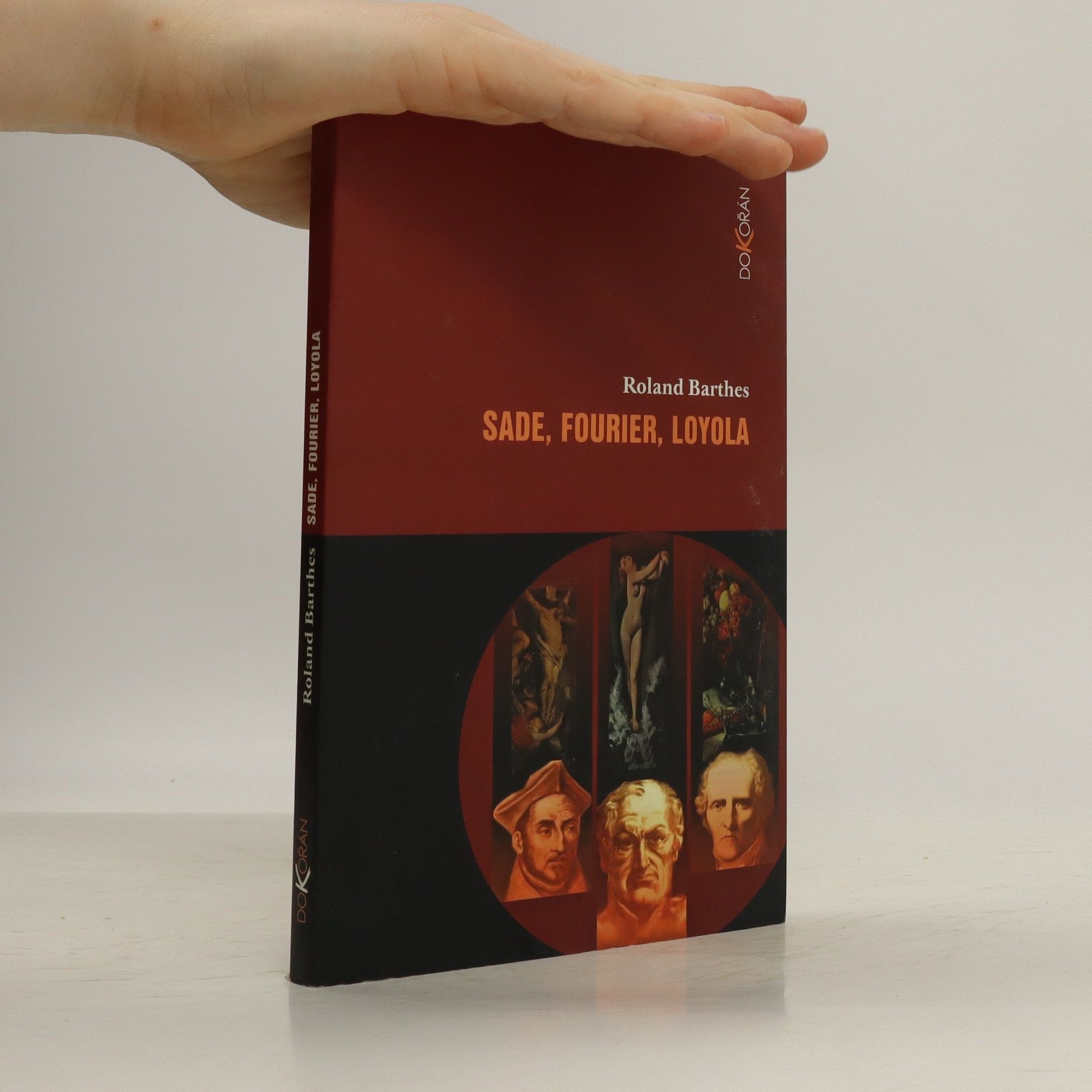
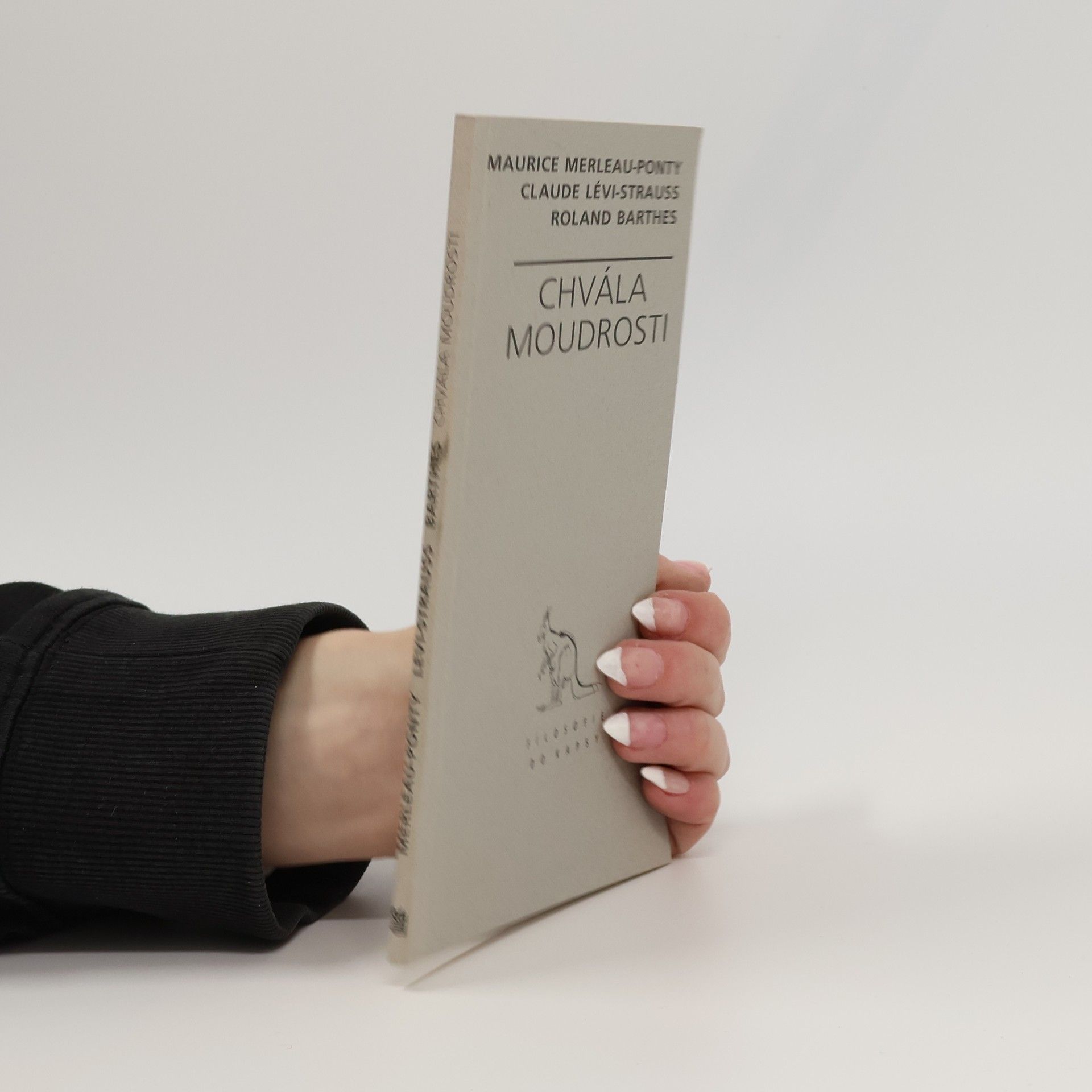
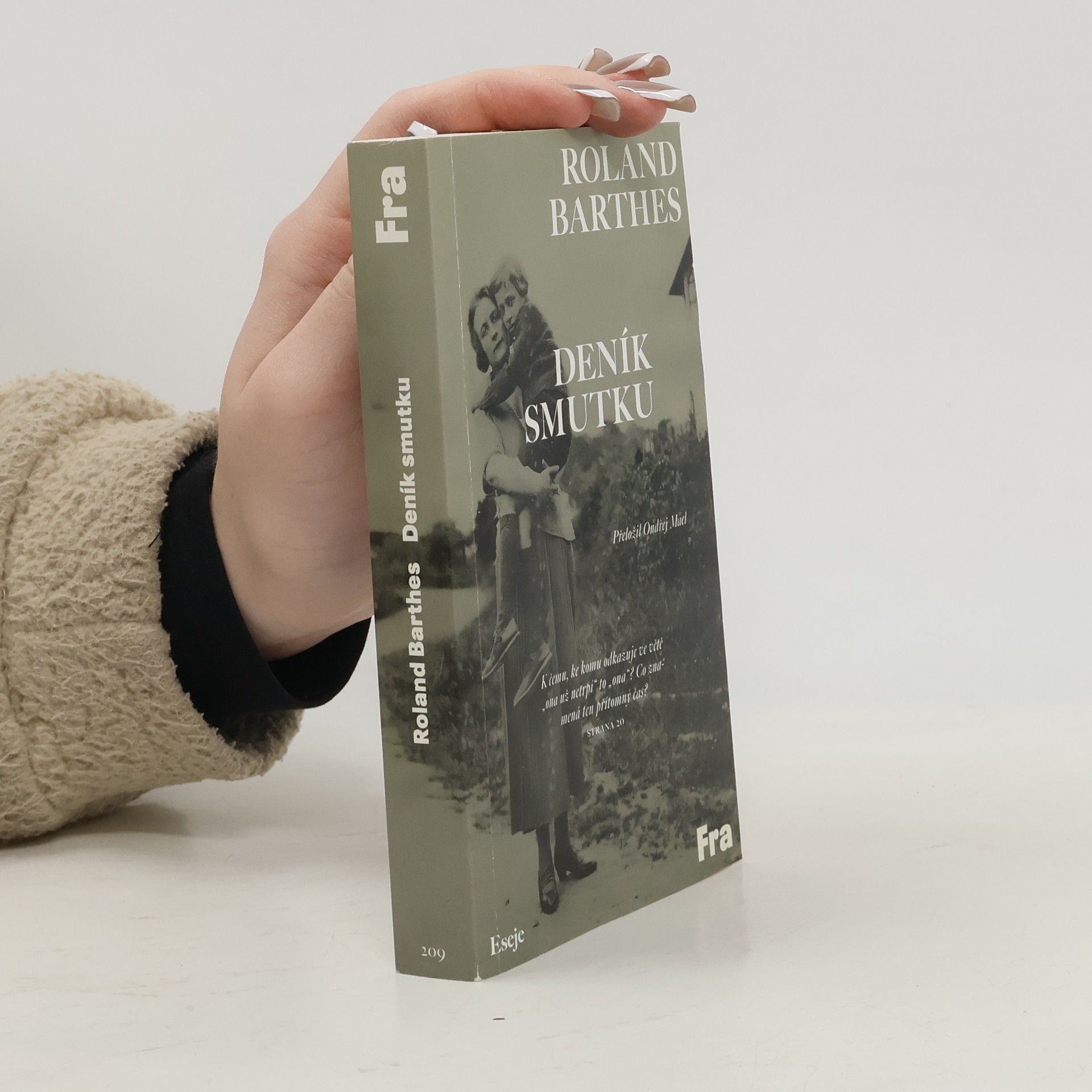
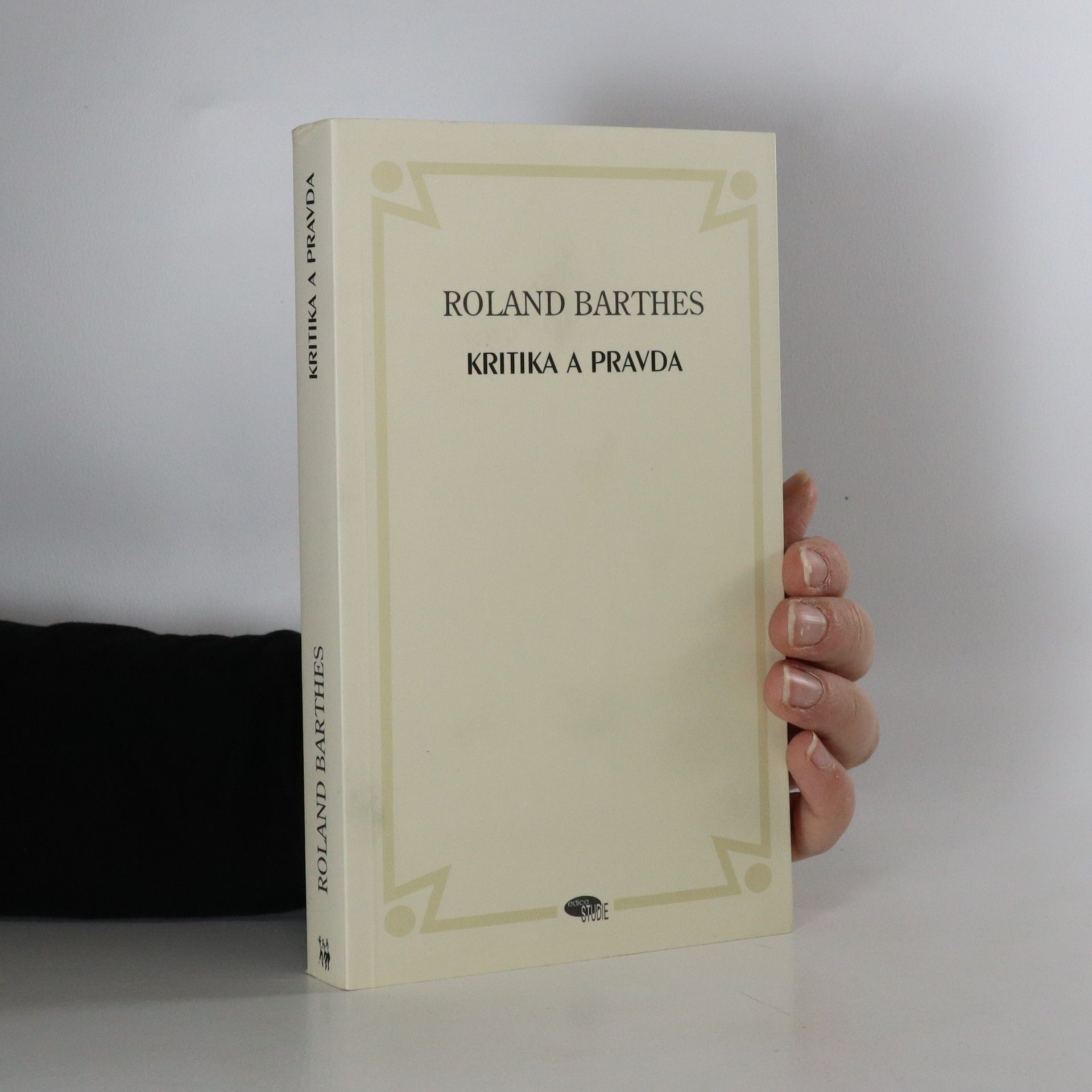
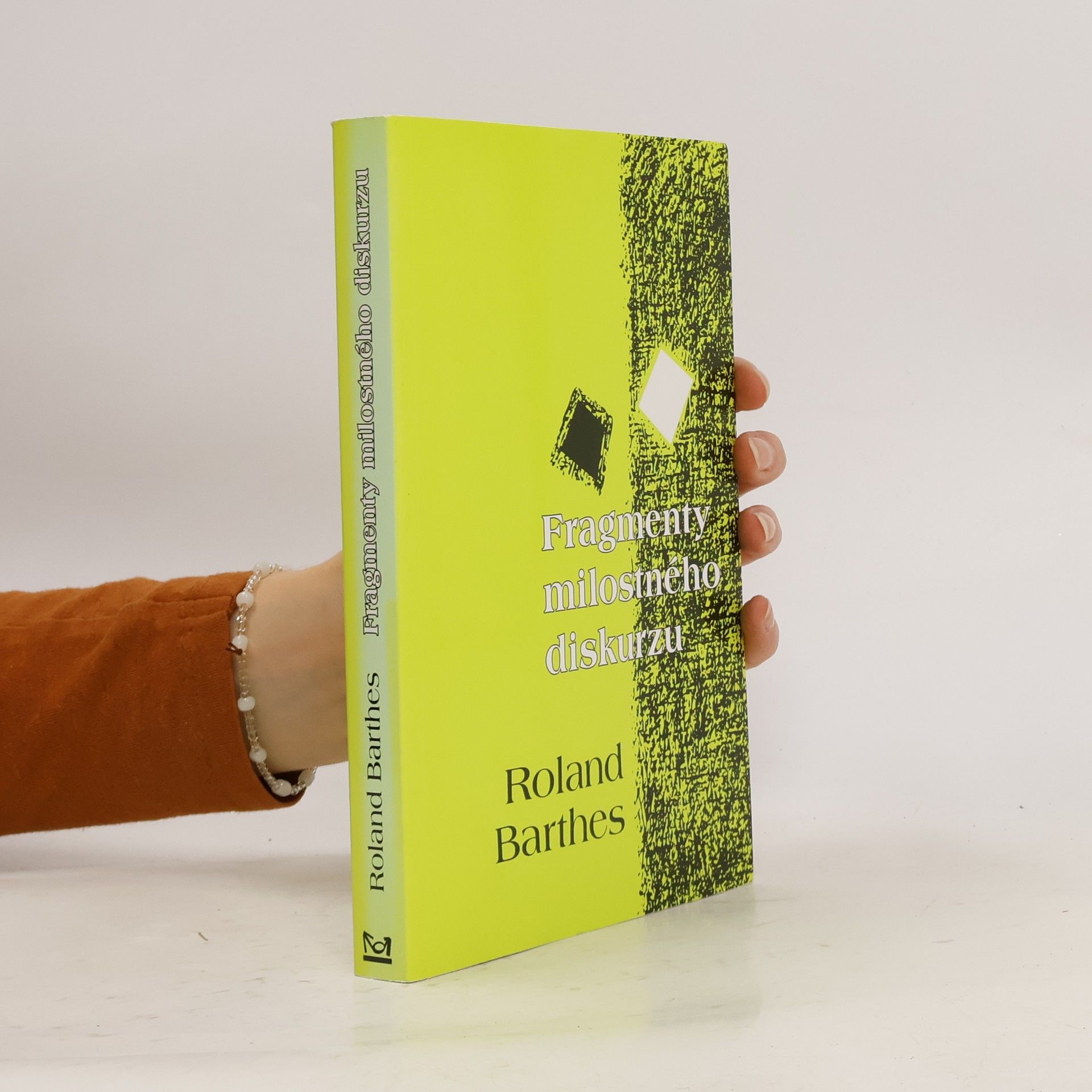
Souborné vydání základních prací filozofa, filologa a lingvisty zasvěcených strukturální analýze literárního díla: Nulový stupeň rukopisu (1953) — Základy sémiologie (1965) — Kritika a pravda (1966).
Deník smutku
- 272 stránek
- 10 hodin čtení
Matka byla v životě spisovatele a filozofa Rolanda Barthese tou nejdůležitější postavou. Den po její smrti, 25. října 1977, si začal vést Deník smutku. Psal jej perem, někdy tužkou, na papírové lístky (papír rozstříhaný na čtvrtiny), které potřeboval mít neustále na pracovním stole. Najdeme tu odkazy na souběžně psané dílo Světlá komora, k němuž ho ponoukla jedna z maminčiných fotografií, nebo i sen napsat proustovský román Vita Nova, kde by z ní učinil postavu. V první řadě je ale tento intimní dokument spouštěním žebříku do propasti posledních tří let, o které ji přežil.
Přednášky tří významných filozofů - Maurice Merleau-Ponty, Claude Lévi-Strauss, Roland Barthes, na téma sociální antropologie, semiologie a filozofie bytí.
Sade, Fourier a Ignác z Loyoly byli klasifikátoři, zakladatelé jazyků: jazyk erotické slasti, jazyk sociálního štěstí a jazyk rozmlouvání s Bohem — každý z nich vložil do budování tohoto sekundárního jazyka veškerou energii své vášně. Vynalézání znaků však paradoxně znamená vstup do oné dodatečnosti smyslu, jakou je označující; jedním slovem znamená to praktikovat psaní. Cílem této knihy není navracet se k myšlenkovému obsahu, který obvykle našim třem autorům připisujeme, tedy k filozofii zla, k utopickému socialismu a k mystice poslušnosti, nýbrž brát Sada, Fouriera a Loyolu jako formulátory, vynálezce psaní, operátory textu.
Uměnovědný esej, který je výrazem hédonistické estetiky, je věnován především vizuálnímu umění a recepci literárního díla. Manifest myšlení, pokud manifest může být slovem, které dokážeme ubránit před nejpřísnějšími měřítky. Roland Barthés rozvíjí své pojetí textu až směrem k jakési individuální utopii. Obrazy, průlomy, zvraty – rozkoš a slast jsou rovnoběžné síly, které se nemohou protnout. Subjekt bude napořád "živoucím rozporem", jásající prostřednictvím textu současně nad pevností svého já a nad jeho pádem. Esej vznikl na počátku sedmdesátých let, kdy se autor stahuje z rozbouřené společenské scény, aby směřoval svůj návrat v roli mistra fragmentů, intertextuality a znovunalezení ztraceného času. Autor vychází z předpokladu, že každý text je nutno vnímat jako součást širšího, souhrnného textu společnosti a dějin, uvnitř "globálního diskurzivního celku". Doprovodná studie Olgy Špilarové (Figury, fragmenty, forma) je zasvěcenou interpretací díla Rolanda Barthese.
Světlá komora. Vysvětlivka k fotografii
- 107 stránek
- 4 hodiny čtení
Světlá komora známého francouzského sémiotika Rolanda Barthese je pozoruhodným textem o fotografii, v němž autor překračuje svá starší sémiotická východiska a fenomén fotografie se mu stává podnětem nejen k proměně metodologie, ale i k hlubšímu filozofickému zamyšlení. Světlá komora patří spolu s knihami Susan Sontagové, Johna Bergera a Viléma Flussera k základním pracím teorie fotografie.
Říše znaků
- 168 stránek
- 6 hodin čtení
Eseje o Japonsku od jednoho z nejdůležitělších myslitelů minulého století. Proč Japonsko? Protože je to země rukopisu: ze všech zemí, které Roland Barthes (1915–1980) mohl poznat, právě v Japonsku narazil na práci se znakem, která má nejblíže k jeho přesvědčení a k jeho tajným představám, nebo, chcete-li, má nejdál k jeho nechutím, k podráždění a ke vzdorům, které v něm podněcuje západní sémiokracie. Japonský znak je silný: úchvatně uspořádaný, sestavený, vyjevený, nikdy přejatý nebo zracionalizovaný. Japonský znak je prázdný: jeho signifikát prchá, na dně signifikantů, které vládnou bez protiváhy, není žádný bůh, pravda, morálka. A především: vyšší jakost tohoto znaku, ušlechtilost jeho tvrzení a erotický půvab, s jakým se kreslí, jsou vylepené všude, na předmětech i na těch nejmalichernějších úkonech, které obvykle vykazujeme do sféry bezvýznamnosti nebo vulgárnosti. Bude řeč o městě, o obchodě, o divadle, o zdvořilosti, o zahradách, o násilí; bude řeč o několika gestech, o několika pokrmech, o několika básních; bude řeč o tvářích, o očích a o štětcích, kterými se tohle všechno píše, ale nemaluje.
Roland Barthes o Rolandu Barthesovi
- 228 stránek
- 8 hodin čtení
Roland Barthes o Rolandu Barthesovi je klíčovou prací Barthesova středního období. Sestává se ze sledu stylizovaných biografických fragmentů, ve kterých se úvahy o vlastní subjektivitě a tělesnosti prolínají s teoretickým myšlením. Vymezuje se zde tak oblast psaní a uvažování, která s postupem času začíná být pro Barthesa stále typičtější.
Mytologie
- 176 stránek
- 7 hodin čtení
Mytologie jsou jedním z nejvýznamnějších Barthesových děl. Úvodní část tvoří řada krátkých a snad až překvapivě zábavných, ovšem mimořádně dobře propracovaných úvah o některých dobových aspektech konzumní společnosti (wrestling, astrologie, kuchařské recepty v časopisech); druhá část je pokusem zasadit tyto texty do obecnějšího teoretického rámce. Je pozoruhodná mimo jiné tím, že jde o jeden z prvních pokusů o aplikaci sémiologického přístupu na konkrétní kulturní jevy (v tomto ohledu bude mít Barthes nesčetné množství následovníků v oblasti teorie kultury, literární teorie, ale i politologie nebo třeba gender studies). Mytologie zásadním způsobem přispěly k proměně francouzské intelektuální scény ve druhé polovině 20. století: jsou jedním z prvních projevů nástupu nového způsobu uvažování, které se vzdá fenomenologické a existencialistiké orientace (Sartre, Camus, Merleau-Ponty) ve prospěch strukturální a synchronní analýzy dějinných i aktuálních jevů (Foucault, Althusser, Derrida aj.).

